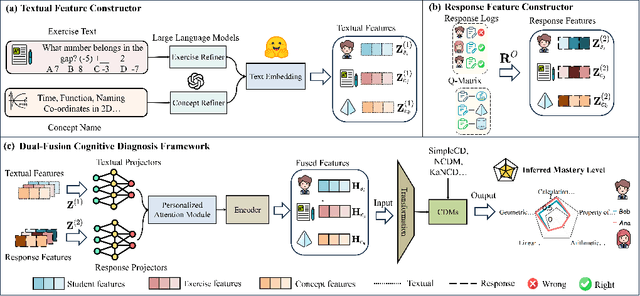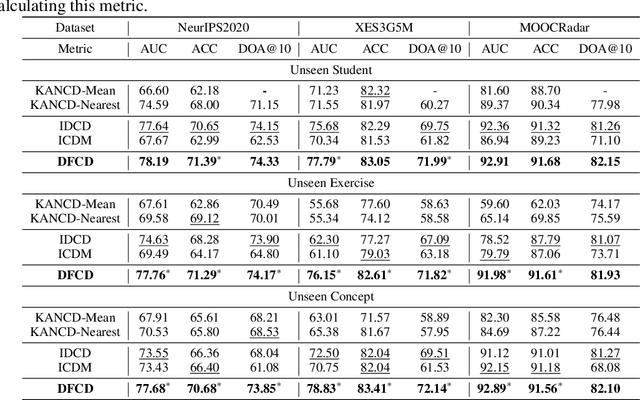A Dual-Fusion Cognitive Diagnosis Framework for Open Student Learning Environments
Paper and Code
Oct 19, 2024



Cognitive diagnosis model (CDM) is a fundamental and upstream component in intelligent education. It aims to infer students' mastery levels based on historical response logs. However, existing CDMs usually follow the ID-based embedding paradigm, which could often diminish the effectiveness of CDMs in open student learning environments. This is mainly because they can hardly directly infer new students' mastery levels or utilize new exercises or knowledge without retraining. Textual semantic information, due to its unified feature space and easy accessibility, can help alleviate this issue. Unfortunately, directly incorporating semantic information may not benefit CDMs, since it does not capture response-relevant features and thus discards the individual characteristics of each student. To this end, this paper proposes a dual-fusion cognitive diagnosis framework (DFCD) to address the challenge of aligning two different modalities, i.e., textual semantic features and response-relevant features. Specifically, in DFCD, we first propose the exercise-refiner and concept-refiner to make the exercises and knowledge concepts more coherent and reasonable via large language models. Then, DFCD encodes the refined features using text embedding models to obtain the semantic information. For response-related features, we propose a novel response matrix to fully incorporate the information within the response logs. Finally, DFCD designs a dual-fusion module to merge the two modal features. The ultimate representations possess the capability of inference in open student learning environments and can be also plugged in existing CDMs. Extensive experiments across real-world datasets show that DFCD achieves superior performance by integrating different modalities and strong adaptability in open student learning environments.
 Add to Chrome
Add to Chrome Add to Firefox
Add to Firefox Add to Edge
Add to Edge